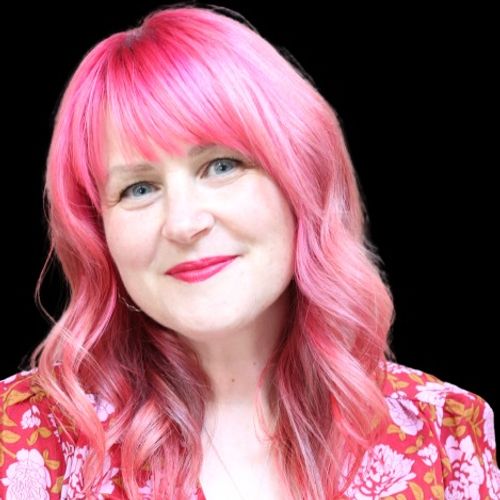47. Things you'll never hear me say (Part 2) "You've got this"
How would I know if "you've got this?" If I said that to you I'd be doing you a massive disservice. I don't know you well enough yet and I cannot possibly imagine what's going on for you unless you tell me.... so, I won't say it and you won't feel as if I'm minimising your feelings.
Coaching with Sarah - All details HERE
Join my email club HERE
Buy the best-selling book Drink Less; Live Better HERE or order from anywhere you usually buy your books.
Subscribe to my 5 day Drink Less Email Series HERE
Download my Habit Tracker HERE
Did you know I've HIDDEN a podcast episode?
It's your secret weapon at 5pm if you are feeling cravings for alcohol.
You can listen HERE
BTW - If you didn't already know, I'm Sarah - Drink Less; Live Better founder, best-selling author, expert speaker, life coach and, as you already know, podcast host!
We don't have to hit rock bottom, we're allowed to want something different and we can CHOOSE to improve our lives from this point onwards.
I work in the magic space where doubt, hope and action meet... oh.... and
PS I believe in you!
Let's get connected;
on Facebook
on insta
Check out Drink Less; Live Better for blog posts and more
Subscribe to this podcast so you don't miss an episode - also please do leave a like or review and share the love! Thank you
Found the podcast useful? I'd love to have a coffee with you - you can buy it HERE
THANK YOU!
Transcript
Hello, darling heart, and welcome to the drink less, live better podcast. This is the podcast that helps you to see that drinking
-:less doesn't need to be stressful, lonely, or boring. I'm your host, Sarah Williamson, and I decided to have a year alcohol
-:free as a little life experiment and haven't looked back. With my experience in training, I now help other women with their
-:alcohol free or drink less adventures. You can find out more about me and sign up to my 5 day drink less challenge at drink
-:less live better dotcom. I'm here to tell you that you can relax, connect, and have fun without alcohol in your life. Join
-:me here each week to find out how. As part of my You'll Never Hear Me Say This series, part 2, you got this. I love a cliche
-:as much as the next person. Of course I do, and I recognize that cliches are usually cliches for a good reason. However, I
-:have got a bunch of them earmarked that you'll never hear me say, and today's example is you've got this. Now, if I had to
-:use the phrase, it would be where I was cheering on the sidelines of a marathon race about 10 meters from the finish line,
-:and I could see the runner was moving in the right direction in a forward motion, I might, at that moment, yell, you've got
-:this. But to be perfectly honest, I'm British, and I'm more likely to politely clap, have a wave a flag, and say, should we
-:go for a nice cup of tea after this? Standing up is tiring. I see the words, you've got this, typed as a response to many
-:a Facebook post. In groups and communities where people are moving towards an alcohol free way living, it's typed out as an
-:encouragement, a cheer, and a way to show some level of support, but I find it really difficult to see. When a stranger online
-:writes a comment about how alcohol is impacting them and how they want to change, we often have no context around that. This
-:type of post might be 3 lines long or a couple of paragraphs. It could give a little bit of context or none at all. We likely
-:have no idea what is going on for someone when they share a small bit of their alcohol free struggle. To type a response of
-:you've got this could do more harm than good. It might unintentionally minimise someone's feelings or even deny their feelings.
-:It could be dismissive of what they have just shared, and, of course, we can never know ourselves whether someone has got
-:this or not. They could be very far from getting it at that moment. Next time you see a comment in a Facebook post, try to
-:consider whether someone actually wants some sympathy or some solutions. Do they explicitly ask for what they want or need?
-:The hey. If they've said they need cheering on, then you've got this might be an entirely appropriate response. Other approaches
-:you could consider are asking someone how you could help, reassuring them that you care, offering to help them find sources,
-:expressing sympathy, or showing some level of understanding. I know I found it frustrating in the past when people have told
-:me I've got this when I've been unsure of my own capabilities, which is the main reason I'm cautious now. If, on the other
-:hand, you're coming to cheer me on next time I'm about to go for a run, do feel free to shout, cheer, and you've got this
-:at me right near the finish line. Oh, and do please follow that up with a nice cup of tea. Thank you for listening this week
-:and, p s, I believe in you.



